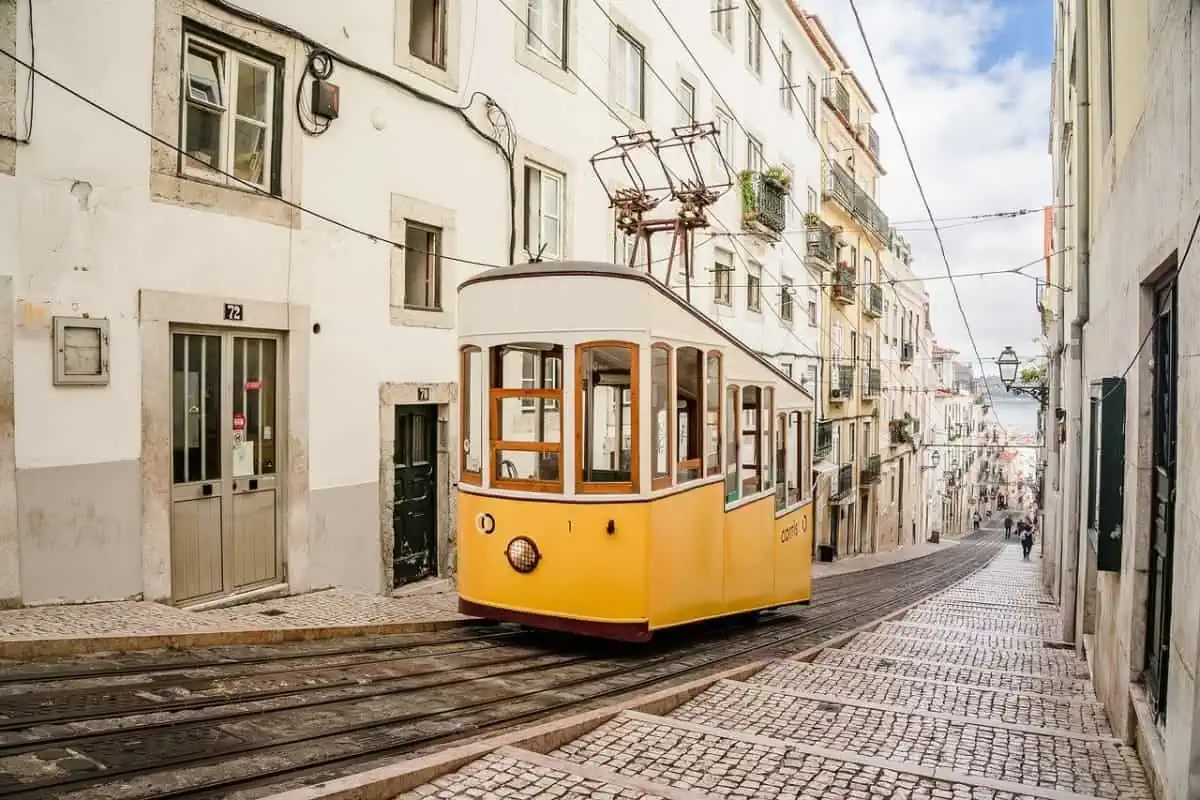As Portugal’s picturesque coastal capital, Lisbon is one of the most popular destinations in the Western European country.
In 2025, it was projected that Lisbon would receive 19 million overnight visitors, a major increase from pre-pandemic numbers.
When you consider the magnificent architecture, fascinating historic sites, and world-class food and wine scene, it’s no wonder that Lisbon is so popular. But is it safe?
Is Lisbon Safe to Visit?
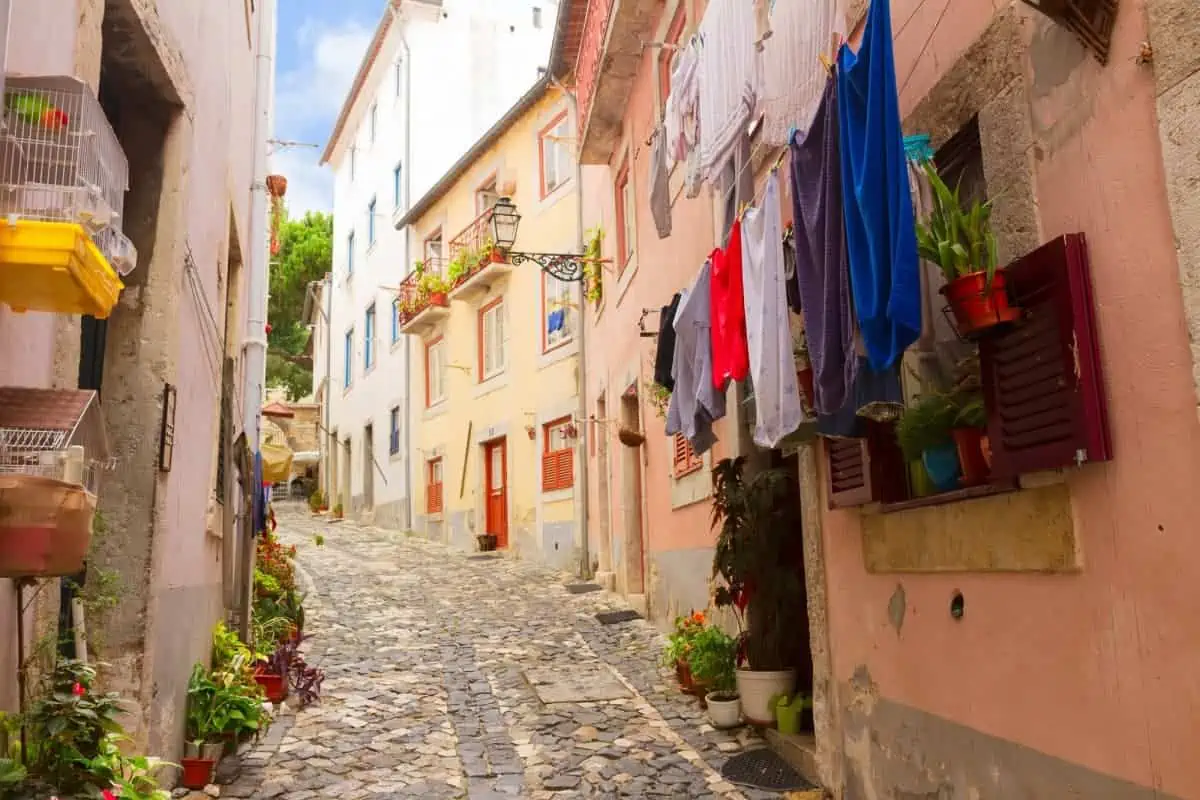
As far as European capital cities go, Lisbon is extremely safe to travel to. According to the 2023 Global Peace Index, Portugal is the seventh safest country in the world, and with a low crime rate of 28.46, Lisbon is one of the safest cities (if not the safest city) in Portugal (via Numbeo). So the math tells us that it is definitely safe to visit.
There’s a low risk of becoming the victim of any type of crime in Lisbon, with petty crimes such as pickpocketing being the biggest issue that tourists would potentially have to face.
There’s a low risk of dealing with public transport-related crime or being mugged, though there is a slightly higher chance of pickpocketing and scamming occurring during your trip.
As a liberal and progressive city, Lisbon is a great destination to visit for both female travelers and solo travelers. Unfortunately, both of these groups may have to be a little more cautious than male travelers or those traveling in groups, but that’s just a matter of following basic safety principles.
In general, regardless of who you are, avoid getting into a vulnerable position by sticking to well-known areas, don’t travel alone at night, and don’t trust strangers. Always watch your drink and avoid getting drunk around people you don’t know very well. If you have a bad gut feeling about something, trust it!
Safe Neighborhoods and Areas in Lisbon
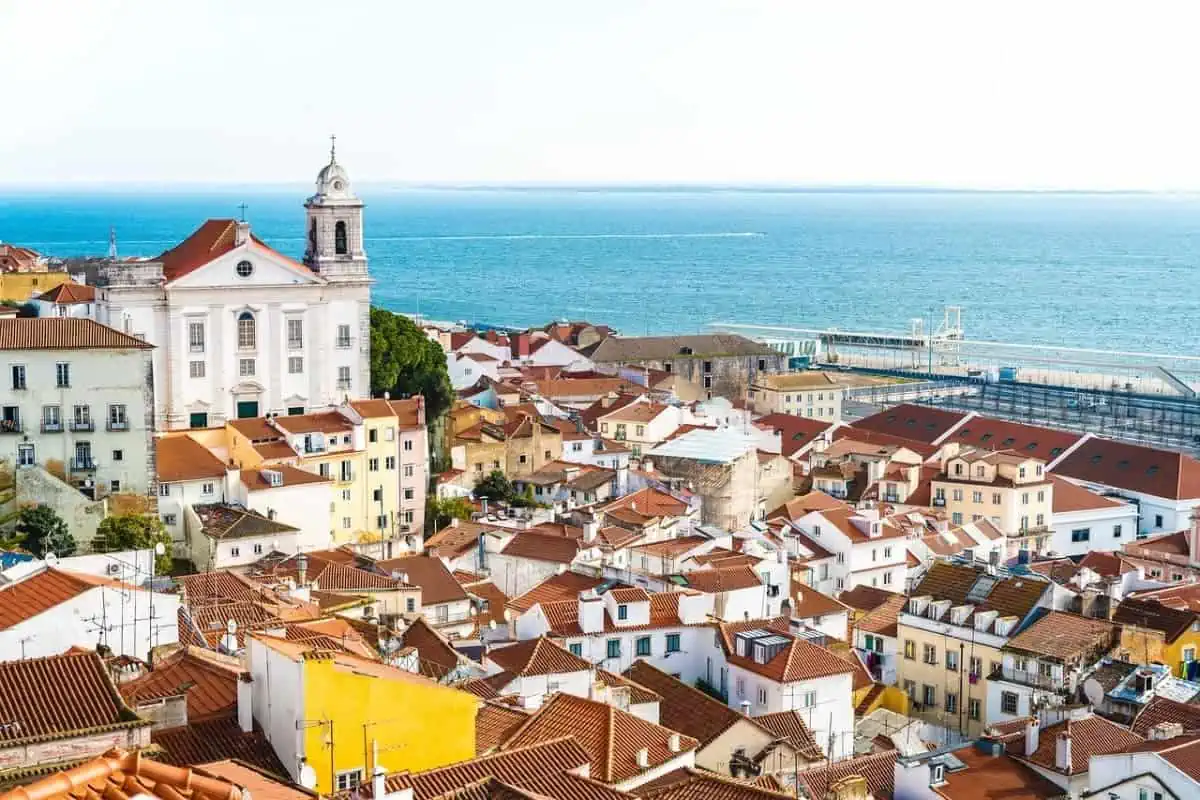
Luckily, being a safe city overall means Libson has many great areas for tourists to base themselves in and explore. They include:
- Baixa – The Downtown area of Lisbon where you’ll always be surrounded by tourists. This is a great area if you don’t mind a fast-paced busy vibe, but you’ll still need to be mindful of pickpockets here.
- Avenida da Liberdade – Lisbon’s answer to Rodeo Drive, this tree-lined avenue is known for prestigious shopping and grand historic mansions. While it is generally safe, the presence of wealthy tourists can attract petty crime, so always secure your belongings.
- Alfama – A hub of stunning architecture, cool eateries, and picturesque views, Alfama is a tourist-friendly neighborhood with a slightly slower pace than Baixa, and one of the safest areas in Lisbon.
- Chiado – A central neighborhood with historic charm that is easy to access via public transport. Its central location also makes it very walkable for people exploring Lisbon.
- Bairro Alto – The nightlife district of Lisbon, Bairro Alto sits on a hill above Chiado and serves as the city’s colorful hub of nightclubs, bars, and restaurants. If you want to soak up stunning scenery by day and party by night in one of the city’s safest areas, this is a great place to stay.

While Lisbon is a safe city to visit overall, there are still some areas that you’ll want to avoid, particularly at night. These are located mostly around the borders of the city, so as a tourist exploring the most popular attractions, you probably won’t come across them anyway. The most dangerous areas of Lisbon to be aware of as a tourist are:
- Martim Moniz – A central area that’s safe during the day, but can be seedy in the late hours of the night.
- Chelas – Known for higher rates of violent crime, including shootings and assaults.
- Cova da Moura – A low socio-economic area that has higher levels of drug crime.
- Intendente – This area tends to have higher crime rates than other areas of Lisbon and is best avoided at night.
- Cais do Sodré – As a tourist, you probably will visit this thriving area thanks to its array of clubs and bars. The type of threat to be aware of here is drunken fights, drug use, and street harassment late at night, thanks to the activities of the area. It’s generally safe during the day but should be avoided at night.
Crime in Lisbon
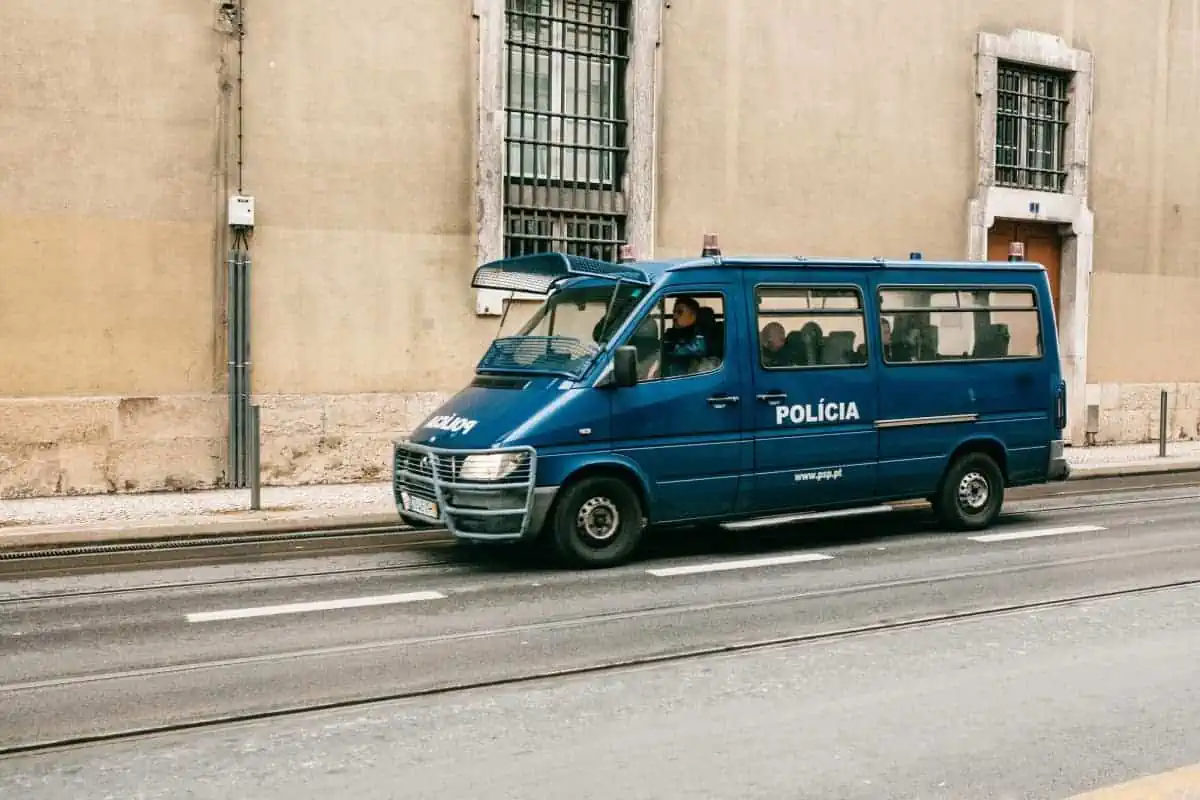
Overall, Lisbon enjoys a low crime rate when compared with other European capital cities. Numbeo confirms that while there is a moderate level of corruption and bribery—which tourists likely won’t have to worry about—there are low recorded levels of crimes that tourists would have to face. These include mugging and theft, car theft, physical attacks and hate crimes, drug dealing, and violent crimes.
In 2019, the international homicide rate (homicides per 100,000 people) in Lisbon was .7, which demonstrates how rare violent crimes like murder are.
Pickpocketing is the most common petty crime in Lisbon. While there is currently no data on the levels of pickpocketing, it is believed to be less than in Barcelona, which receives around 300 pickpocketing cases a day.
While you should always practice regular safety precautions, even in statistically safe destinations, most people in Lisbon feel safe walking around the city at night (though not in the areas outlined above!).
Drugs have been decriminalized in Portugal, which means users are approached with a rehabilitation focus rather than a punitive one. You may come across people trying to sell you drugs in Lisbon, particularly in active nightlife areas, but the best thing to do is simply walk away.
Common Scams in Lisbon
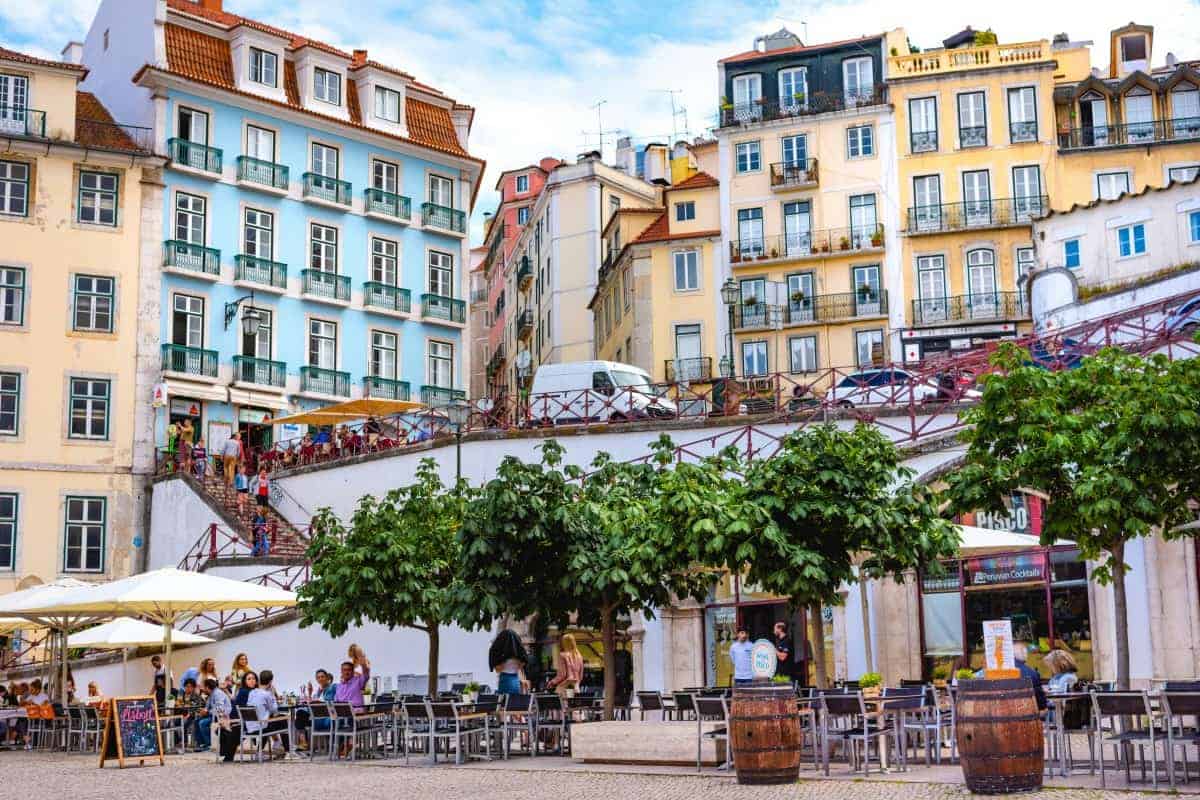
If you’re lining up to get into a tourist attraction in Lisbon, don’t engage with people who approach you trying to sell you discounted tickets to get in. These are not real tickets.
When dining out in Lisbon, make sure that the prices of all the food and drinks on the menu are clearly displayed. Though not common, it has been reported that certain restaurants will avoid displaying the price and then charge exorbitant amounts, particularly for drinks.
Along the same lines, restaurants in touristy locations have been known to add items to the final bill, hoping that diners won’t notice. Always look over your bill, and if there’s anything on there that shouldn’t be, question it.
Another scam to watch out for in Lisbon is people on the street asking for you to sign petitions for a good cause. Remember, real petitions don’t require you to give away any money, but these scammers will emotionally manipulate you and then put you on the spot for a donation once you’ve signed. And unfortunately, these types of petitions aren’t for genuine causes; they’re just scams to get your money.
Also, be wary of street vendors who approach people late at night with extremely high prices for their products. While it’s easy to avoid this scam if you’re sober, sometimes you might get swept up in the moment if you’re having a fun night drinking and end up paying well over what the items are worth.
Though legal, Euronet ATMs do fall under the “scam” territory as they add on a significant transaction fee. According to Portugalist, the fees can be as high as 20% of the amount you’re withdrawing. When using an ATM in Lisbon, ensure it’s not a Euronet to avoid unfair transaction fees, or at the very least, read the fine print!
Public Transport

Public transport is relatively safe in Lisbon, but like anywhere else, busy train carriages lend themselves to pickpocketing. To stay safe, always keep an eye on your belongings. That also goes for the areas around the stations.
Remember that taxis are legally required to turn on the meter and display the fare in Portugal, so ask them to if they don’t do it already.
Terrorism
Unfortunately, terrorists can strike anywhere, any time. Lisbon is at risk, just as every other busy European city is. According to the Australian Government’s official travel website, the chance of terrorism in Portugal is significant, and terrorists have been known to target tourist hotspots and transport hubs.
To keep yourself as safe as possible, their advice is to “be alert to possible threats in public places,” “monitor local news for new or emerging threats,” and “report suspicious activity or items to the police.”
Hazardous Weather and Natural Disasters
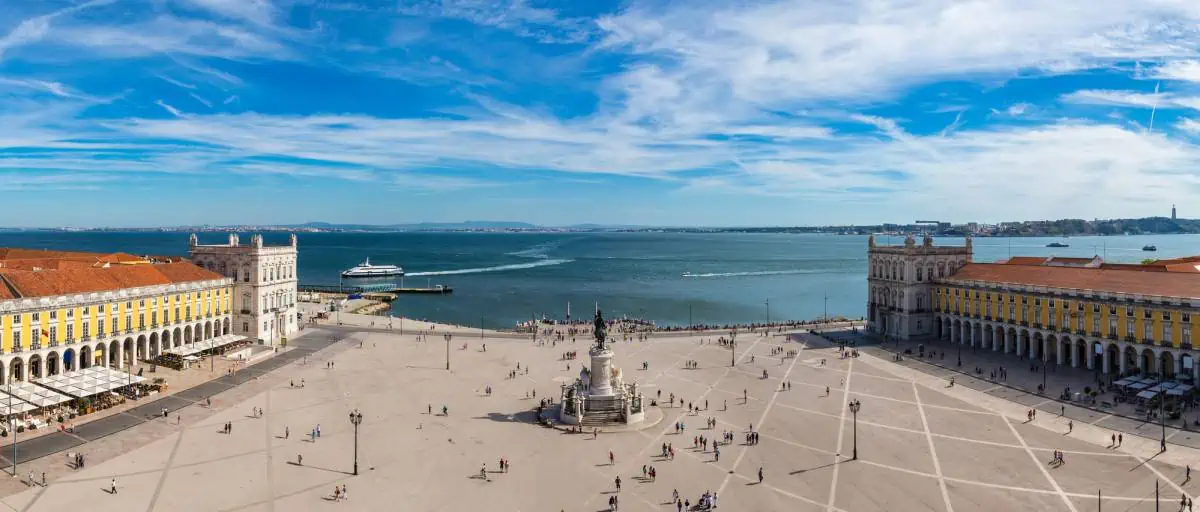
Portugal sits in an active earthquake zone. In the event of an earthquake in Lisbon, follow the advice of local authorities.
Additionally, there are sometimes wildfires and heat waves during summer in Lisbon. Pay attention to media alerts and avoid known areas that may be affected by fire.
To keep safe during a summer heatwave, always stay hydrated throughout the day, particularly if you’re walking around. If possible, keep indoors when it’s overly hot and save outdoor activities for the early morning and the evening when the temperatures are cooler.
Things to Consider – Safety Tips For Lisbon
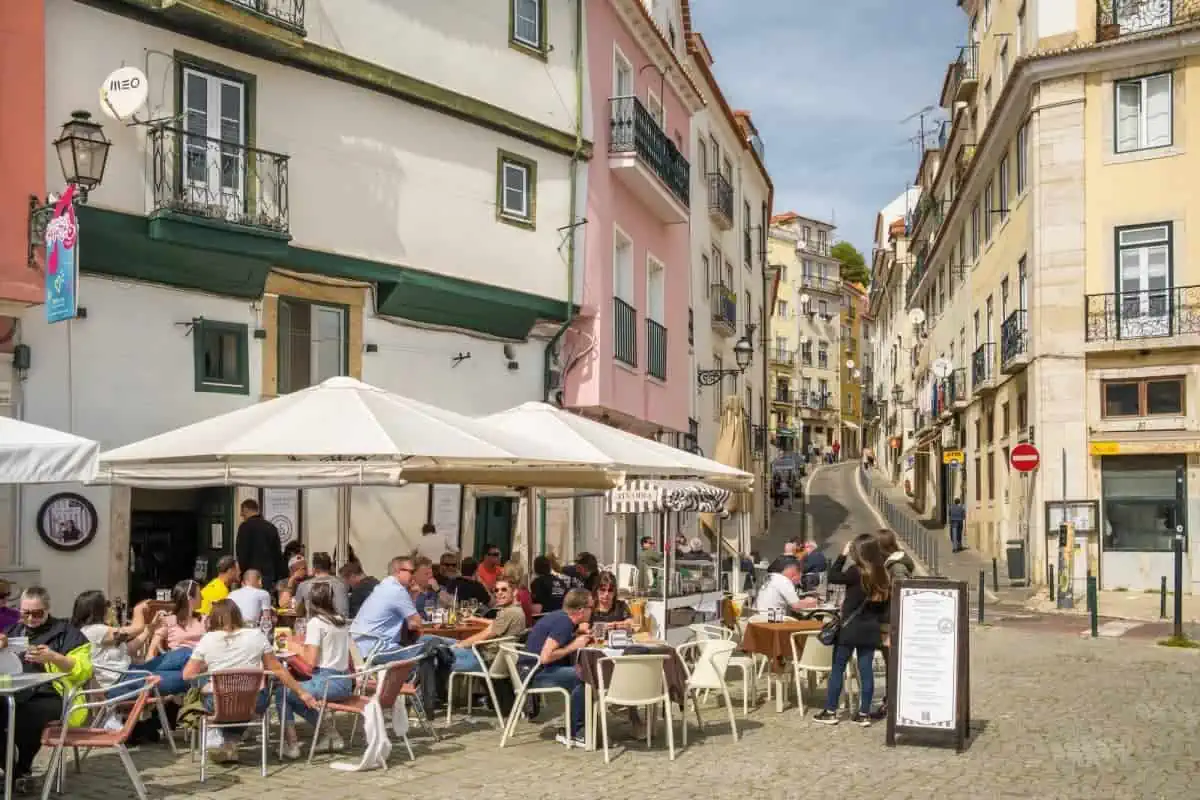
Avoid walking alone at night. This advice applies to basically any destination you visit, including Lisbon. If you have to travel at night, try to stay in groups and in well-lit and crowded areas, where there’s less chance of being the target of petty or even violent crime.
Watch your valuables. This means not leaving them on restaurant tables, especially if you’re sitting outside. When you’re traveling, keep valuables on your person, securely in a zipped bag, or locked in your suitcase. Avoid leaving valuables in shared dorms in hostels unless they’re locked in your suitcase.
Don’t walk in bike lanes. There are many bike lanes around Lisbon’s waterfront. Walking in them causes a hazard to both you and the cyclists using them.
Wear comfortable walking shoes. Lisbon dates back to ancient times and is one of the oldest cities in Europe, so the pavement isn’t always up to modern standards. The city is known for its Portuguese cobblestone, and while this is beautiful to look at and adds to the character of the city, it can hurt your feet or even cause an ankle injury if you aren’t wearing the proper footwear. Additionally, there are lots of hills in Lisbon which can be difficult to traverse without the right shoes.
Avoid political demonstrations. Public demonstrations are common in Lisbon, and while most of them are peaceful, they do have the potential to turn violent.
Follow media advice regarding natural disasters and extreme weather. Wildfires can occur in the summer near Lisbon, while flooding can occur in winter.
Avoid gambling in unlicensed venues. It’s only legal in official casinos and licensed venues.
Be on the lookout for suspicious activity. As a European capital city, Lisbon is always at risk of terrorist attacks. When visiting public places that are popular with foreigners, always be aware of who’s around, report any suspicious activity, and follow your gut instincts.
Stay vigilant around train and metro stations, and on public transport. These areas often attract perpetrators of petty crime, like pickpockets. Always be aware of your surroundings and your belongings.
Memorize 112. This is the emergency medical assistance number to call if you need urgent help.
Stay hydrated. Particularly if you are traveling in summer, when the average temperature sits at nearly 30 degrees Celsius (86 Fahrenheit), Lisbon can get very hot. Ensure you’re drinking enough water, especially if you’re walking around the city, to avoid getting dehydrated.
Don’t accept drinks from strangers. If you have to leave your drink unattended, don’t drink from it again. Drink spiking has been reported in Lisbon.
FAQs About Lisbon Safety
